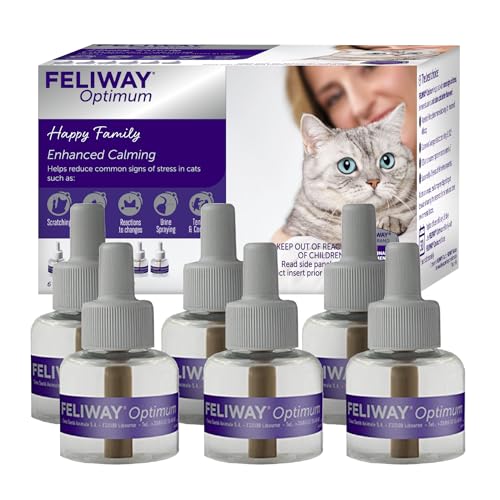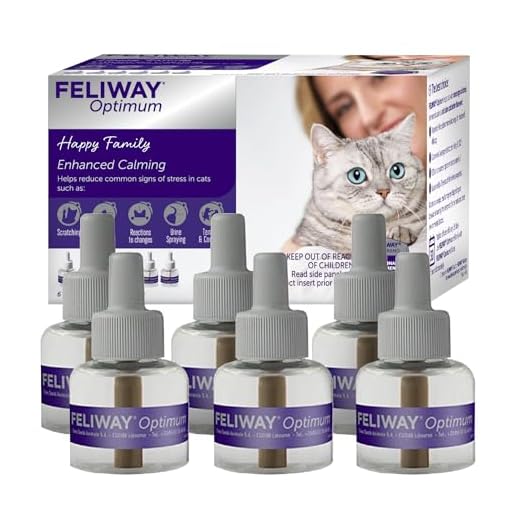



As an 8-year-old Scottish Fold, I’ve seen many things in my time, but the question about whether a mother can consume her offspring is a serious one that needs clarity. The truth is, while it may seem shocking, this behavior, known as filial cannibalism, can occur under certain circumstances.
Stress, lack of resources, or health issues can lead a mother to engage in this action. It’s not typical behavior but can arise in situations where survival instincts kick in. If a mother feels overwhelmed or if her litter contains weak or sickly young, she might resort to this. It’s a harsh reality of nature, reflecting a deep instinct to ensure the health and well-being of the remaining offspring.
It’s crucial for caretakers to monitor the mother and her young closely. Providing a calm environment, proper nutrition, and medical care can greatly reduce the chances of such distressing actions. Understanding these dynamics is vital for anyone looking after a feline family.
Can Cats Consume Their Offspring?
No, it is highly unlikely that felines will consume their young under normal circumstances. There are exceptions, typically driven by extreme stress, illness, or a lack of resources. In healthy environments, maternal instincts usually prevail, encouraging care and protection rather than harm.
In rare situations where a mother feels threatened or overwhelmed, she might engage in unusual behavior. This can stem from factors like inadequate nutrition or a chaotic living situation. Proper care and a stable environment are crucial for nurturing young.
| Behavior | Possible Causes |
|---|---|
| Neglecting Young | Stress, lack of resources, health issues |
| Unusual Aggression | Overwhelmed, fear, inadequate shelter |
| Maternal Care | Healthy environment, proper nutrition, security |
For those who care for felines, ensuring a calm and nourishing atmosphere is essential for the well-being of both the mother and her young. Monitoring health and providing a safe space can prevent any distressing behaviors.
Reasons Behind Maternal Cannibalism in Felines
Stress and environmental factors can lead to the drastic behavior of consuming offspring. High anxiety levels, often caused by loud noises or unfamiliar surroundings, may trigger such actions as a survival instinct.
Nutritional deficiencies also play a significant role. Mothers lacking essential vitamins and minerals might resort to this behavior to replenish lost nutrients. This phenomenon highlights the importance of a balanced diet during pregnancy and lactation.
In some cases, illness or weakness within the litter can prompt a mother to eliminate the less viable young to conserve resources for the healthier ones. This is a natural form of selection, ensuring the survival of the fittest.
Behavioral Aspects
Instinctual behavior can also be a factor. In the wild, certain species may consume weaker young to reduce the risk of attracting predators. This instinct can carry over into domestic situations, particularly under stress.
Additionally, maternal experience influences these actions. First-time mothers may not know how to care properly for their young and might react unpredictably. Education on proper care can significantly reduce the likelihood of such occurrences.
Signs of Stress or Distress in Mother Felines
Look out for specific indicators that suggest a new mom is feeling overwhelmed. Recognizing these signs early can help in providing the necessary support.
Behavioral Changes
- Increased vocalization, such as excessive meowing or yowling.
- Avoidance of nursing or interacting with offspring.
- Excessive grooming, particularly of the abdomen or nipples.
- Signs of aggression towards human caregivers or other animals.
Physical Symptoms
- Loss of appetite or refusal to eat.
- Weight loss despite nursing.
- Rapid breathing or panting.
- Tremors or shaking, especially during interactions with her litter.
Addressing these signs quickly can help ensure the well-being of both the mother and her young ones. Keep the environment calm and provide a safe space for her to recuperate.
Impact of Environment on Feline Behavior
To ensure a balanced and healthy mindset, it’s vital to create an optimal living space. Here are specific recommendations:
- Provide a safe and secure area for nurturing young ones, free from disturbances.
- Ensure access to clean litter boxes to prevent stress from unclean conditions.
- Incorporate vertical spaces, like shelves or cat trees, to encourage climbing and exploration.
- Limit noise levels to reduce anxiety; consider soundproofing if necessary.
- Maintain a consistent routine for feeding and playtime to promote stability.
Environmental enrichment plays a key role in shaping behaviors. Engaging toys, scratching posts, and safe hiding spots can help alleviate boredom and anxiety. Regular interaction with humans also fosters a sense of companionship.
Stressors must be identified and minimized. Signs of discomfort might include excessive grooming or withdrawal. Monitoring for these behaviors helps in making necessary adjustments.
For those looking to enhance their outdoor experiences, tools like are harry lawn mowers any good can improve garden spaces, contributing to a more stimulating environment.
Ultimately, an enriched environment supports healthy interactions and reduces the likelihood of negative behaviors. Tailoring the living space to individual preferences can lead to happier and more content companions.
Health Risks for Kittens in Distressed Situations
In high-stress environments, young felines face significant health threats. Factors such as maternal anxiety can lead to neglect, impacting the physical and emotional development of the little ones. Stress hormones released by a distressed mother can affect her milk quality, potentially causing malnutrition in her offspring.
Additionally, inadequate care during stressful periods can result in weakened immune systems, making the tiny furballs vulnerable to infections and diseases. It’s crucial to monitor the surroundings and ensure a calm atmosphere, as disturbances can exacerbate these risks. Providing a safe, quiet space can help alleviate stress for both mother and her offspring.
Regular veterinary check-ups are essential to identify any health issues early. Ensuring that all vaccinations are up to date is also important. If fleas or parasites become a problem, consider using reliable flea treatment for cats and home to keep everyone healthy.
Observing the mother’s behavior is key. If she shows signs of extreme distress, such as excessive grooming or aggression, it may indicate that the environment is not suitable for raising her young ones. Interventions can include providing more hiding spaces or reducing noise levels to create a more conducive setting for nurturing and growth.
Preventive Measures for Cat Owners
Provide a quiet, safe space for a mother feline and her offspring. Create a separate area with soft bedding, away from noise and disturbances. This allows for a more relaxed environment, promoting positive behavior.
Regular veterinary check-ups are essential. Ensure that the mother is in good health and receiving proper nutrition. A balanced diet supports her well-being and the development of her young.
Socialization and Interaction
Spend time with the mother, offering gentle affection. This helps reduce stress levels and encourages bonding. Monitor her reactions to different stimuli and adjust the environment accordingly.
Monitoring Behavior
Keep an eye on the mother’s behavior. If she shows signs of anxiety or aggression, seek advice from a vet or animal behaviorist. Early intervention can prevent negative outcomes for her and the little ones.
When to Seek Veterinary Assistance
If a mother is showing signs of aggression towards her offspring or appears disinterested in their well-being, it’s time to reach out to a veterinarian. Prompt evaluation can determine underlying health issues or behavioral concerns that may be affecting her maternal instincts.
Recognizing Warning Signs
Monitor for unusual behaviors. If the feline is excessively vocal, pacing, or isolating herself from her young ones, these can indicate distress. A sudden change in eating habits or neglecting grooming can also signify that professional help is needed. Any visible signs of illness in the mother, such as lethargy or abnormal discharge, warrant immediate veterinary attention.
Assessing the Environment
Check the surroundings for stressors. Noise, unfamiliar animals, or lack of a secure space can affect maternal behavior. A calming environment promotes a healthier bond between the mother and her young. If environmental factors are suspected, consulting a vet can provide strategies for improvement.
FAQ:
Can a mother cat eat her own kittens?
Yes, there are rare instances where a mother cat may eat her kittens. This behavior, known as filial cannibalism, can occur due to various reasons such as stress, lack of resources, or health issues affecting the mother. In some cases, she might eat a kitten that is stillborn or has health problems. It’s important to monitor the health of both the mother and her kittens to ensure they are thriving.
What causes a cat to eat her kittens?
Several factors can lead a mother cat to eat her kittens. Stress and anxiety are significant contributors; if a cat feels threatened by her environment or if there are too many disturbances, she may resort to this behavior. Additionally, if the mother cat is malnourished or feels she cannot care for all her kittens, she might choose to eat some to focus her energy on the healthier ones. Illness in the kittens can also provoke this instinctual behavior.
How can I prevent a cat from eating her kittens?
To reduce the risk of a mother cat eating her kittens, ensure she has a calm and safe environment to give birth. Provide a quiet, private space away from noise and disturbances. Proper nutrition before and after giving birth is essential, as it supports her health and the health of her kittens. If a mother cat shows signs of stress or anxiety, consider consulting a veterinarian for advice on how to create a more secure environment. Additionally, regular check-ups can help monitor the health of both the mother and her kittens.









